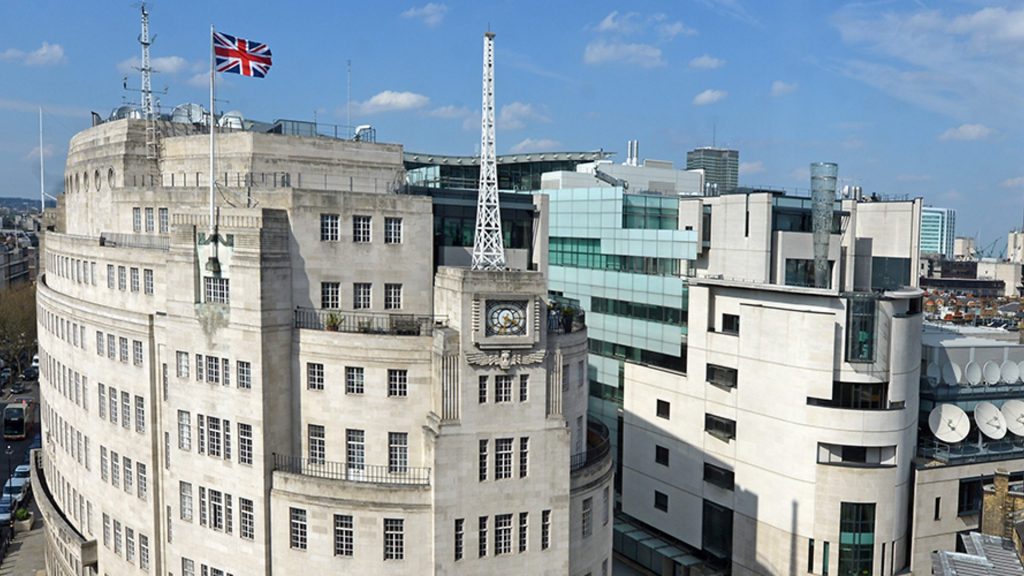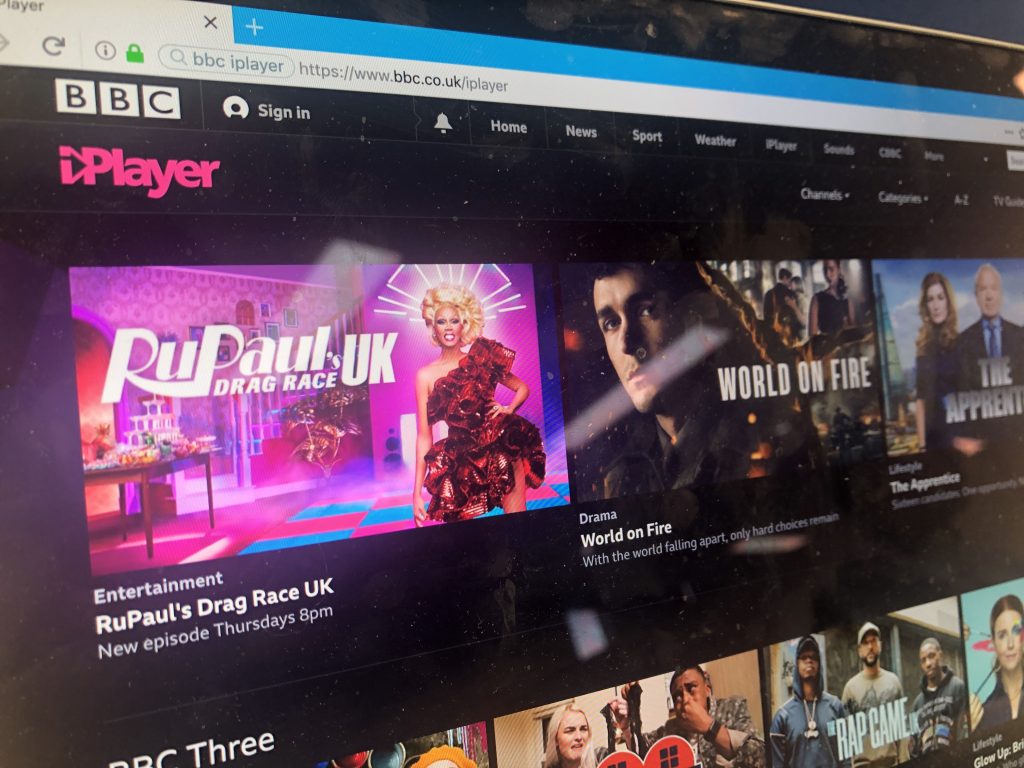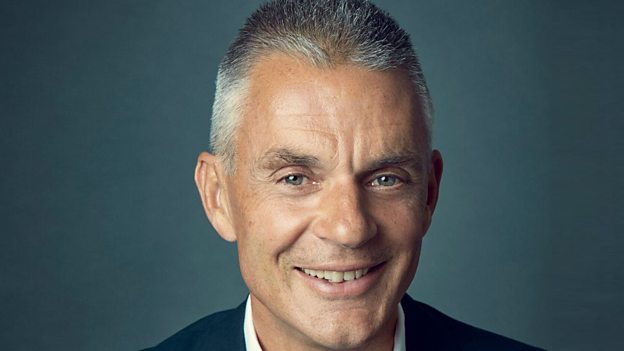
After more than 40 years of operation, DTVE is closing its doors and our website will no longer be updated daily. Thank you for all of your support.
Restoration and progression – the challenges facing new BBC director general Tim Davie

Following six months of intense speculation, Tim Davie has been appointed as the director general of the BBC.
Davie is no stranger to the broadcaster, having headed up commercial operations at BBCS and its predecessor BBC Worldwide (BBCWW) for more than seven years. But while he is well known inside of the organisation, the incoming director general needs to be more than just a continuity appointment.
His appointment is arguably a safer bet than some of the external candidates being discussed. These included Amazon’s UK chief Doug Gurr; Will Lewis, the former CEO of Wall Street Journal publisher Dow Jones; Channel 4 CEO Alex Mahon; All3Media’s Jane Turton; Endemol Shine Group’s CEO Sophie Turner Laing; and – reportedly in what would have been a huge shock – Elisabeth Murdoch.
Davie also beat BBC content chief Charlotte Moore, who has held that role since July 2016. Moore was the only female contender and has the claim of being responsible for the broadcaster’s television strategy. At one time, the idea of splitting Hall’s roles of director general and editor-in-chief between Moore and Davie was considered, but nothing has seemed to come from this.
When he assumes the position of director general on September 1, Tim Davie will preside over Britain’s biggest broadcaster at a time of national emergency, thanks to the healthcare and economic effects of the global pandemic and the ongoing uncertainty of Brexit.
But it is not just those national problems that await Davie; the BBC itself is at quite possibly the most tumultuous time in its 97 year history with a number of existential problems threatening the broadcaster.
Here are just some of the key issues facing Davie as the boss of the BBC.
Funding an institution
The biggest crisis for the BBC right now is undoubtedly the licence fee – its primary source of funding. The licence fee costs £157.50 per year (as of April 2020) and generated £3.7 billion in revenue for the BBC in 2018-19. It represents a little more than 75% of the BBC’s total £4.889 billion revenue – revenue that is under threat from a government that has repeatedly questioned the broadcaster’s funding model.
One of the first things that prime minister Boris Johnson did following the Conservative party’s 2019 general election win was launch a review into decriminalisation of non-payment of the licence fee – currently sat at 6.6% according to Ampere, but set to grow significantly in the event of decriminalisation.
Both relevant government appointees since the election – culture secretary Oliver Dowden and DCMS chair Julian Knight – are very much in favour of reviewing the funding model in spite of protestations from BBC chairman David Clementi that the broadcaster would “no longer be the BBC you and I know”.
Clementi’s argument is backed by Hannah Walsh, a senior analyst at Ampere, who wrote in an April report on the future of the licence fee: “Ampere believes that the BBC cannot match current income levels which are generated through the licence fee via most alternative funding mechanisms. As with decriminalisation of the licence fee, a reduction in revenue will lead to the reduction in BBC’s core services or the cessation of its smaller services.”
Still, this was not enough to stop reports emerging in February that the government had drafted a blueprint to scrap the licence fee and replace it with a subscription model. This plan would see the broadcaster’s role in British society heavily diminished, with a significant number of national TV and radio networks either sold off or shut down.
However, since that news broke, the broadcaster has stood up to the task of providing the nation with education, entertainment and fitness services as it deals with the coronavirus pandemic. While self-preservation was obviously not the point of these measures, Davie will hope to take over a broadcaster imbued with a new wave of public support.
Also in Davie’s favour in regards to the BBC’s funding is his own commercial background, notes Paolo Pescatore, tech, media and telco analyst at PP Foresight: “Davie brings a wealth of experience, professionalism and credibility. More importantly, his commercial acumen will prove invaluable in helping navigate the BBC through these challenging and uncertain times.”
Restoring trust in the BBC as a force for good
Following December’s bitterly fought general election, a YouGov poll found that less than half of the general public believe the institution is honest and impartial. Less than half of Britons (44%) now say they trust the institution to tell the truth despite its public charter to remain politically neutral, with 20% saying that they do not trust the broadcaster at all. This isn’t necessarily an issue along party lines either, with members from both Labour and the Conservatives accusing the BBC of political bias over the election.

Newsnight presenter Emily Maitlis sparked controversy over remarks she made about Boris Johnson’s senior advisor Dominic Cummings
In March, Conservative culture secretary Oliver Dowden made a thinly veiled attack on the broadcaster when he said that the BBC lacks a “genuine diversity of thought and experience” and “genuine impartiality.”
This was recently brought to light again with the case of Newsnight host Emily Maitlis, who was recently engulfed in controversy over remarks she made about Boris Johnson’s senior adviser Dominic Cummings. The broadcaster received tens of thousands of complaints, both about the presenter’s comments and the BBC’s response.
It may be impossible to create a news organisation in the modern day and age that has no semblance of an agenda, but Davie faces the tough task of restoring faith from the general public that the BBC can at least be something of a voice of reason amid the political points scoring of Westminster and flood of fake news across the web.
Reviewing optics and transparency in pay
Along with having a trust issue, the BBC also has an identity problem. In 2017, Sharon White, the former boss of Ofcom, accused the BBC of being “middle-aged and middle-class”. She said that “people from a minority group – whether a distinct region of the country or a particular ethnicity – feel that they are neutrally portrayed at best, or negatively at worst.”
Before announcing his departure in January, Tony Hall confirmed that the BBC would at least tackle its regional problem by moving two-thirds of its staff out of London by 2027.
In spite of this, there still remains a very publicly apparent lack of diversity at the BBC.
Also particularly apparent are the negative optics of appointing Davie – a privately educated middle-aged heterosexual white man – ahead of Moore who is arguably just as well-equipped to do the job.

Samira Ahmed was successful in her employment tribunal where she claimed that the BBC owed her £700,000 after discovering that she had been paid less than fellow presenter Jeremy Vine for years
And this is without even mentioning the troubling fact that not a single person of colour was publicly considered for the job. Already, in the hours after Davie was named as the new director general, Twitter was awash with complaints that the BBC, which has ‘diversity matters’ as one of its slogans, is going back to the status quo. Ayesha Hazarika, editor of the Evening Standard’s Londoner Diary, clearly laid out the facts of inequality across senior positions in British culture: “We have a white male Culture Secretary, BBC DG, Chair of UK Music, CEO of the BFI, National Theatre director & Equity is about to elect one as GS. We appreciate the memes about diversity, peace, love etc but my, leadership in the arts & creative industries has a long way to go.”
Damning as well is the recently settled Samira Ahmed employment tribunal verdict which agreed in her favour that the broadcaster was paying men an average of 9.3% more than women for the same work. The knock-on effect is that there will likely be even more cases in the coming months and years, none of which will be a good look for the broadcaster.
In order to save this embarrassment and show the broadcaster to be representative of Britain in the 21st century, Davie must differentiate himself as a champion of diversity. It will likely be awkward and painful for many within the organisation, but it is necessary to reflect the modern world.
In the immediate aftermath of his appointment, Davie has already made positive noises in an email to staff. According to Sima Kotecha, a journalist at the BBC, Davie wrote: “Racism and racial injustice is completely indefensible. Across #BBC, we are working to ensure the highest possible value is placed on diversity and inclusion, and we will do more to ensure that this is at heart of organisation.”
A good start, but these words need to become actions if the BBC is to truly change for good.
Continued digital transformation
Outside of dealing with these core structural challenges of the broadcaster itself, Davie must also face the fact that the industry is changing at a breakneck pace and understand that viewers in 2020 demand more from a national broadcaster than just a handful of linear TV channels and an on-demand catch up service.
Consumers are leaning more towards streaming video consumption than ever before, as evidenced from the ongoing pandemic and the record day for the BBC iPlayer on May 10 which followed a record year for the VOD service in 2019.
 Key to the BBC’s digital strategy is its entirely redesigned iPlayer to launch this year – aided by Ofcom’s lifting of restrictions on how long content can remain on the platform. We have already seen the latter at play with the increased volumes of box-sets on iPlayer to increase entertainment available to consumers at home during the pandemic.
Key to the BBC’s digital strategy is its entirely redesigned iPlayer to launch this year – aided by Ofcom’s lifting of restrictions on how long content can remain on the platform. We have already seen the latter at play with the increased volumes of box-sets on iPlayer to increase entertainment available to consumers at home during the pandemic.
The BBC iPlayer, which launched in 2007, initially emerged as one of the UK’s top viewing platforms, but its lustre has worn off in the past few years due to the limiting factor of the viewing window and the explosive emergence of international streamers like Netflix, Amazon Prime Video and, more recently, Disney+. This is exemplified by the fact that in 2014, the iPlayer had a 40% share of the streaming market but in 2019 that was at only 15%.
Both Hall and Moore had championed the iPlayer’s potential to, in the words of the director of content, “become the heart of everything we do. ”
The broadcaster under Davie must deliver on this promise if it is to remain relevant for audiences who are increasingly turning away from traditional means of viewing.



